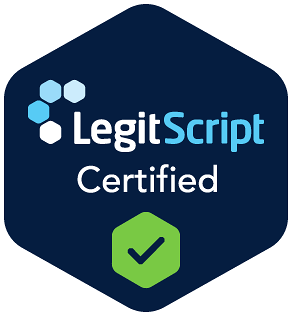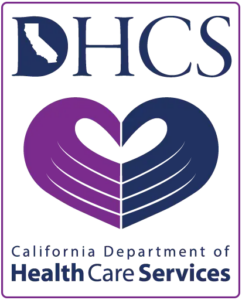Choosing the right detox facility in California can make a big difference in recovery, but not all centers meet the necessary standards. Understanding the state’s drug and alcohol compliance rules helps people identify safe, reputable programs. Key factors include proper licensing, qualified medical staff, and evidence-based treatment plans. Knowing what to look for ensures better care and support during a vulnerable time.
California’s detox centers have some serious rules in place to keep patients safe and ensure top-notch care. When researching options, people should check for accreditation, staff credentials, and adherence to drug and alcohol compliance guidelines. A well-run facility will prioritize safety, transparency, and individualized treatment. Being informed helps individuals and families make confident decisions about detox services.
What Is California’s Definition Of A Detox Facility?
California law defines a detox facility as one that provides 24-hour non‑medical, residential support in a group setting for adults undergoing withdrawal from alcohol or other drugs. To earn a license, a program must include one or more core services, such as drug and alcohol detox, individual therapy, group therapy, educational sessions, or recovery planning, thus enforcing drug and alcohol compliance standards.

This setup ensures people in early recovery have access to close monitoring without being in a medical hospital. During withdrawal, trained staff check on clients frequently (every 30 minutes in residential settings for at least the first 72 hours) to support safe passage through detox. These checks are logged, including vital signs and physical observations, all part of maintaining proper documentation for compliance.
In addition, facilities must meet zoning, fire, and safety codes, and staff credentials such as CPR and first-aid training. They also need to adhere to guidelines under Title 9, CCR, ensuring they maintain licensure credentials and drug and alcohol compliance within their operational model.
Why Is A DHCS License Required, And How Does It Ensure Drug And Alcohol Compliance?
A DHCS license is a legal gatekeeper for California detox centers. It confirms that a facility is officially authorized to deliver residential, non-medical services tied to withdrawal, counseling, education, or treatment planning for adults dealing with alcohol or drug use. This licensing requirement is crucial for ensuring drug and alcohol compliance across every layer of operation.
When a facility applies, it must supply documents showing approval in areas like zoning, fire safety, floor plans, staffing qualifications, and health clearances. These safeguards protect everyone on site. Inspectors verify credentials such as CPR and TB tests and confirm that counselors are credentialed appropriately under Title 9 regulations.
Through licensing, DHCS enforces regular checks. These include scheduled site visits, reviews of client intake forms, and a look at how well a detox plan meets standards. They also ensure ongoing monitoring of incidents like deaths or professional misconduct, which must be reported within 24 hours. Consistent care, safety, and transparency are all encouraged by this active oversight, which supports drug and alcohol compliance.
Finally, DHCS reserves the right to penalize or suspend facilities that fall short. Licenses can be revoked, and facilities can face civil penalties or be barred from public funding. In this way, licensing functions as both an entry requirement and a performance guarantee that detox programs operate safely and uphold patient rights.

What Is A DHCS Level Of Care Designation, And How Does It Relate To ASAM Criteria?
California’s Department of Health Care Services (DHCS) assigns Level of Care designations (e.g., 3.1, 3.2, 3.3, 3.5) to licensed residential substance use disorder facilities. These labels define specific programs from low-intensity support to high-intensity medically supervised withdrawal, aligning facility services, staffing, observation, and treatment with ASAM framework standards.
ASAM Criteria is the gold standard for addiction care, evaluating patients across six dimensions to guide care placement. DHCS designations are based on ASAM standards, which are incorporated into California law through Health and Safety Code Section 11834.015.
Some treatment centers can pursue ASAM LOC Certification directly, bypassing the DHCS designation process, as DHCS accepts ASAM certification. Others opt for the DHCS designation or hold both. DHCS designation involves an application, provisional status, and a compliance inspection.
Ultimately, the DHCS Level of Care designation links to ASAM’s multidimensional approach and California’s drug and alcohol compliance laws, verifying that a facility’s services, staff training, and resident care match individualized ASAM-based evaluations.
How Are Detox Services Regulated And Staffed?
Detox services in California follow strict rules on how they are managed and staffed to meet standards for drug and alcohol compliance. Below is a clear list showing how these facilities are structured for safety and oversight.
- Constant oversight during withdrawal. A minimum of one lead caregiver and one direct care staff member must be present at all times when people are under care. Staffing levels can be increased based on each individual’s needs as assessed by formal planning tools.
- Staff training and hierarchy. New staff must complete on-site orientation before working unsupervised. Until they do, they are monitored by experienced, fully trained personnel to ensure proper care and compliance with standards.
- A behavioral support professional was assigned. Each person receiving detox care must have access to a qualified behavior specialist for at least six hours per month. These professionals guide and train direct care staff, helping maintain drug and alcohol compliance throughout treatment.
- Administrative oversight is required. Detox centers must have an administrator on duty for a minimum of 20 hours per week. This ensures strong leadership and rapid response to any safety or compliance concerns.
- Special rules for adolescent services. When serving minors, there must be at least two awake and on-site staff from early morning to late evening, and at least one awake staff member overnight. All staff need background checks and clearances to work legally with youth.
- Licensed and certified counseling staff. At least 30 percent of counseling staff must hold professional licenses or certifications recognized in California. This ensures that treatment meets professional standards and supports drug and alcohol compliance.
- Ongoing inspections and corrective measures. DHCS inspectors can visit unannounced, review records, interview staff or clients, and document any gaps in staffing, training, or care. Facilities must correct problems within set timeframes to stay approved.
How Is Drug And Alcohol Compliance Monitored And Enforced?
Detox providers in California follow a multi-layered system to monitor and enforce drug and alcohol compliance. Below are key methods used to keep services accountable and ensure patient safety:
- Complaint investigations. The DHCS Licensing and Certification Division receives reports from clients, staff, or family. Any allegations of misconduct by counselors or violations of regulations can trigger an investigation. Alleged counselor infractions must be reported within 24 hours.
- Scheduled and surprise inspections. DHCS conducts regular audits and on-site visits of licensed facilities and county-run services. These inspections look at records, staffing, client safety, treatment documentation, and operational practices.
- Clinical and fiscal compliance audits. The Behavioral Health Compliance and Monitoring Branch and County Monitoring Units review clinical practices and financial documentation tied to the Substance Abuse Prevention and Treatment Block Grant and Medi-Cal-funded services. Findings often result in mandatory corrective action plans.
- Corrective action processes and penalties. When deficiencies are found, DHCS issues formal reports outlining necessary changes and deadlines. Failing to meet requirements can lead to civil penalties, funding holds, suspension, or revocation of the license.
- Data quality monitoring. County contractors and providers need to submit accurate service data (like CalOMS Tx). DHCS closely monitors the timeliness and completeness of this data. Noncompliance may result in withheld funding.
- Local enforcement backup. If DHCS does not act on known violations within the required time frames, counties or cities can step in to enforce state standards at the local level.
Does Insurance Cover Detox Programs In California?
Most Californians can use health insurance (private or Medi-Cal) for detox, boosting drug and alcohol compliance by making treatment accessible and regulated. The ACA mandates that private plans cover substance use disorder treatment, preventing outright denial but allowing limits, pre-authorization, and cost-sharing. Many California detox centers work with major insurers like Blue Shield, Anthem, and Aetna, reducing costs.

Medi-Cal offers comprehensive benefits, including detox and follow-up care, aligning with standards like ASAM Criteria. Coverage varies by plan and needs, with some insurers limiting days or requiring prior approval. Out-of-network care costs more, so verify participation. Detox programs often help patients navigate insurance, avoiding surprise costs and ensuring proper documentation for state and federal compliance. Thus, insurance eases access and drives accountability and drug and alcohol compliance in California’s detox system.
Recover Safely At Surf City Detox
 Surf City Detox in Huntington Beach, CA, provides a structured, compliant detox experience under California’s strict regulations. Our facility is fully licensed, with protocols designed to meet state and federal standards for drug and alcohol treatment. Medical supervision ensures safety during withdrawal, while evidence-based therapies address both addiction and co-occurring mental health needs.
Surf City Detox in Huntington Beach, CA, provides a structured, compliant detox experience under California’s strict regulations. Our facility is fully licensed, with protocols designed to meet state and federal standards for drug and alcohol treatment. Medical supervision ensures safety during withdrawal, while evidence-based therapies address both addiction and co-occurring mental health needs.
Our rehab in Huntington Beach offers a calming setting without compromising clinical rigor. Treatment plans are customized, including medication-assisted therapy when appropriate, and aftercare support to maintain progress. Transparency in policies and outcomes reinforces trust, aligning with compliance requirements while prioritizing patient recovery.
Surf City Detox nails it by blending the rules with personalized care, setting up a solid path for healing that truly sticks. Our approach demonstrates that compliance and compassion can work together to support long-term sobriety. Contact us today with full confidence that your recovery journey will be as safe as possible.
Dr. Eric Chaghouri is a 2007 graduate from the University of California, Los Angeles, where he earned his B. A. in Biology with Summa Cum Laude honors. While at UCLA, he helped the men’s varsity volleyball team earn a National Championship in 2006. He was named the UCLA Scholar-Athlete of the Year in 2007.
He earned his medical degree from the Keck School of Medicine in 2011. He completed his internship training in 2008 at Cedars-Sinai Medical Center and the remaining three years of residency in general adult psychiatry at the Los Angeles County and University of Southern California Medical Center. He served as the Chief Resident in psychiatric emergency services during his fourth year of residency. He also served as Resident Clinical Instructor and Volunteer Faculty in the Department of Psychiatry at the Keck School of Medicine.
After completing residency, Dr. Chaghouri accepted a fellowship position in forensic psychiatry at the prestigious USC Institute of Psychiatry and Law. His scholarly activities included publishing in Legal Digest and presenting research findings at the Keck School of Medicine annual conference.
Since completing his forensic psychiatry fellowship, he has established a successful and thriving practice in Southern California, focusing on treatment of co-occurring psychiatric and addictive disorders. He has developed a strong clinical team of practitioners who share similar goals and philosophies regarding psychiatric treatment, including providing cutting-edge interventional treatments for psychiatric conditions. He works in an array of capacities with attorneys, courts, and other parties in actual or potential litigation. He also has extensive experience consulting and providing opinions on psychiatric issues for major television networks. Dr. Chaghouri’s interests include addiction medicine, substance use disorders, forensic psychiatry, medical ethics, psychological autopsy, gender wellness, and evidence-based treatment of psychiatric conditions.



